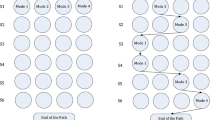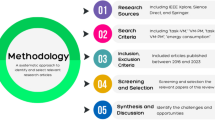Abstract
High-performance computing becomes the most important field in various industries and organizations, which needs to be concentrated more today due to their massive resource requirements. It is required to provide more resources to accomplish the high-performance tasks which are very difficult to handle. This problem is resolved in the earlier research method, namely similarity aware high-performance scientific application scheduling. This method would group the similar tasks and provide the optimal resource for the similar kinds of tasks together. However, the existing research method doesn’t focus on the resource similarity where it is complex to identify the proper resource for the task execution based on their characteristics. This would lead to increased time complexity and reduced accuracy in optimal resource allocation. To solve this problem, new framework, namely profit and resource availability aware optimal scheduling, is introduced in this work. In this research method, initially resources that contribute to similar characteristics would be identified by constructing the distance matrix and then learning-based optimal scheduling is done to allocate the proper resources for the incoming tasks accurately. Here, support vector machine is utilized to learn the optimal allocation of tasks and hybrid cuckoo genetic algorithm is implemented for the optimal scheduling process. The implementation is done in the CloudSim environment which concludes the proposed work. The proposed method would ensure optimum results than the existing methods in terms of reduced time complexity and improved accuracy.







Similar content being viewed by others
References
Nan X, He Y, Guan L (2013) Optimization of workload scheduling for multimedia cloud computing. In: Submit to 2013 IEEE International Symposium on Circuits and Systems
Zhu W, Luo C, Wang J, Li S (2011) Multimedia cloud computing. IEEE Signal Process Mag 28(3):59–69
Nan X, He Y, Guan L (2011) Optimal resource allocation for multimedia cloud based on queuing model. In: Proceeding of IEEE International Workshop on Multimedia Signal Processing (MMSP)
Wu Y, Wu C, Li B, Qiu X, Lau FC (2011) Cloud media: when cloud on demand meets video on demand. In: Proceeding of IEEE International Conference on Distributed Computing Systems (ICDCS), pp 268–277
Balasangameshwara J, Raju N (2012) A hybrid policy for fault tolerant load balancing in grid computing environments. J Netw Comput Appl 35:412–422
Tai J, Zhang J, Li J, Meleis W, Mi N (2011) ARA: adaptive resource allocation for cloud computing environments under bursty workloads. In: Proceeding of IEEE Conference on Performance Computing and Communications
Silberstein M, Geiger D, Schuster A, Livny M (2006) Scheduling mixed workloads in multi-grids: the grid execution hierarchy. In: Proceeding of IEEE Symposium on High Performance Distributed Computing, pp 291–302
Tan M, Siegel HJ, Antonio JK, Li YA (1997) Minimizing the application execution time through scheduling of subtasks and communication traffic in a heterogeneous computing system. IEEE Trans Parallel Distrib Syst 8(8):857–871
Yu J, Buyya R (2005) A taxonomy of scientific workflow systems for grid computing. Sigmod Record 34(3):44–49
Foster I, Zhao Y, Raicu I, Lu S (2008) Cloud computing and grid computing 360-degree compared. In: Proceeding of IEEE Grid Computing Environments Workshop
Muñoz P, Barco R, De la Bandera I (2013) Optimization of load balancing using fuzzy Q-learning for next generation wireless networks. J Proc Expert Syst Appl 8(11):1469–1479
Wang Y, Zhou Z, Liu L, Wu W (2013) Replica-aided load balancing in overlay networks. J Netw Comput Appl 36(1):388–401
Qaisar S, Khawaja K (2012) Cloud computing: network/security threats and countermeasures. Interdiscip J Contemp Res Bus 3(9):1323–1329
Somani U, Lakhani K, Mundra M (2010) Implementing digital signature with RSA encryption algorithm to enhance the data security of cloud in cloud computing. In: 2010 IEEE 1st International Conference on Parallel, Distributed and Grid Computing (PDGC—2010)
Lin W, Qi D (2010) Research on resource self-organizing model for cloud computing. In: Proceeding of IEEE International Conference on Internet Technology and Applications, pp 1–5
Shi H, Zhan Z (2009) An optimal infrastructure design method of cloud computing services from the BDIM perspective. In: Proceeding of IEEE Computational Intelligence and Industrial Applications, vol 1, pp 393–396
Teng F, Magoules F (2010) Resource pricing and equilibrium allocation policy in cloud computing. In: Proceeding of IEEE International Conference on Computer and Information Technology (CIT 2010), pp 195–202
Yang XS, Deb S (2009) Cuckoo search via Lévy flights. In: World Congress on Nature and Biologically Inspired Computing, NaBIC 2009, pp 210–214
Whitley D (1994) A genetic algorithm tutorial. Stat Comput 4(2):65–85
Zhao Y, Luo S, Wang Y, Wang S (2017) Cotask scheduling in cloud computing. In: IEEE 25th International Conference on Network Protocols (ICNP), pp 1–6
Panda SK, Jana PK (2017) SLA-based task scheduling algorithms for heterogeneous multi-cloud environment. J Supercomput 73(6):2730–2762
Author information
Authors and Affiliations
Corresponding author
Rights and permissions
About this article
Cite this article
Reshmi, B., Poongodi, P. Profit and resource availability-constrained optimal handling of high-performance scientific computing tasks. J Supercomput 76, 4247–4261 (2020). https://doi.org/10.1007/s11227-018-2332-7
Published:
Issue Date:
DOI: https://doi.org/10.1007/s11227-018-2332-7




